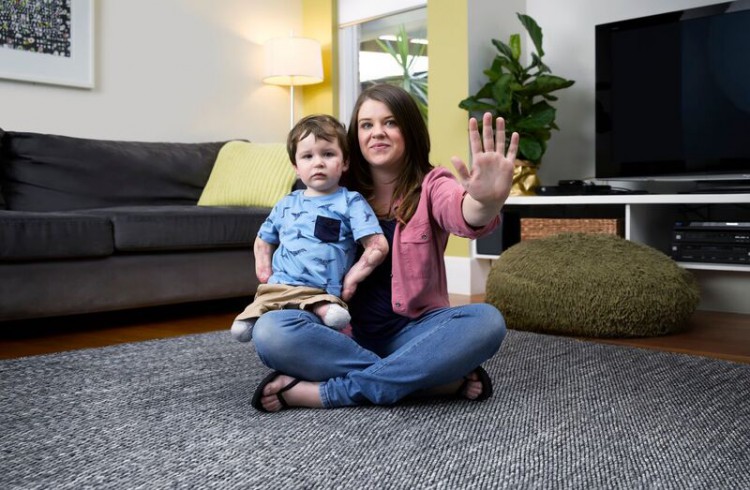Whilst 93 percent of Australian parents believe that they know what meningococcal disease is, on average nearly a third of Australian parents (28%) are not fully aware of the facts about the disease.
22 percent Of parents recently surveyed misidentified the deadly bacterial infection as a type of cancer (2%), flu (16%) and even sunburn (4%).
In response to the research, commissioned by GlaxoSmithKline (GSK), a national awareness campaign #KnowMeningococcal is launching in partnership with Kyly Clarke – mum to Kelsey Lee and wife of Aussie Cricket legend Michael Clarke – to encourage parents to know more about the devastating and potentially life-threatening bacterial infection.
GSK conducted research that uncovered some significant knowledge gaps among Australian parents with young children:
•41% of Australian parents are not aware of specific symptoms of the disease.
•46% did not know that routine childhood vaccination does not cover all strains of meningococcal disease.
• 22% misidentified the deadly bacterial infection as a type of cancer (2%), flu (16%) and even sunburn (4%).
Whilst rare, meningococcal disease can progress rapidly – resulting in death within 24 hours or serious long-term disabilities, including brain damage, deafness and limb loss. Despite the risk, the survey of 1,000 parents with young children found that on average, 41 percent of Australian parents are not aware of some of the more specific symptoms of the disease.
Almost all (97%) parents surveyed believe vaccinations are important because they help prevent disease, yet many parents have not taken their child to receive any vaccinations outside of the routine childhood vaccination schedule. Almost half (46%) did not know that routine childhood vaccination did not cover all strains of meningococcal disease.
Professor Robert Booy, Head of the Clinical Research Team at the National Centre for Immunisation Research and Surveillance (NCIRS) said, “while awareness of meningococcal disease is high, the research has found there is still very little public understanding about the signs and symptoms, the serious risks the disease poses, and the different types of strains. There are six different types of the bacteria that cause meningococcal disease and four of these types are present in Australia. Most parents only know of one type and don’t realise that the rest of the strains aren’t covered by their routine vaccinations.”
Meningococcal disease is a rare bacterial infection of the blood and/or membranes that line the spinal cord and brain. Some of the symptoms that may be present include high fever, severe headache, nausea and vomiting, or a reddish or purple skin rash. Infants, young children and adolescents are most at risk, especially those under the age of four, and babies under 12 months have the highest risk, which is why it is something every parent needs to know more about.
Commenting on why she’s supporting the KnowMeningococcal campaign, Kyly Clarke said “when it comes to my daughter, Kelsey Lee, like all parents all I want is for her to be healthy and happy. While I knew about meningococcal disease, it wasn’t until I met families affected by the disease that I realised how important it is as a parent to not only know the signs and symptoms to look out for, but also how to protect against it.”
Meningococcal disease is rare and it can be devastating, but you can help to protect against it. Talk to your general practitioner and visit KnowMeningococcal.com.au to learn more about the signs and symptoms of meningococcal disease and how to prevent it.
Also please join Kyly Clarke in #INowKnow pledge to help spread the word about meningococcal disease.
Share your comments below.
We may get commissions for purchases made using links in this post. Learn more.





















-

-
-
-
mom94125 said
- 05 Oct 2017
Reply
-

-
-
-
knyholm said
- 09 Aug 2017
Reply
-

-
-
-
Ellen said
- 29 Jun 2017

Reply
-

-
-
-
Nomes said
- 28 Jun 2017
Reply
-

-
-
-
mom90758 said
- 28 Jun 2017
Reply
-

-
-
-
mom206279 said
- 28 Jun 2017
Reply
-

-
-
-
mom160421 said
- 28 Jun 2017
Reply
-

-
-
-
BellaB said
- 28 Jun 2017
Reply
Post a comment11:16 pm
1:57 pm
7:33 am
7:13 pm
3:54 pm
12:27 pm
12:01 pm
11:45 am